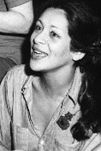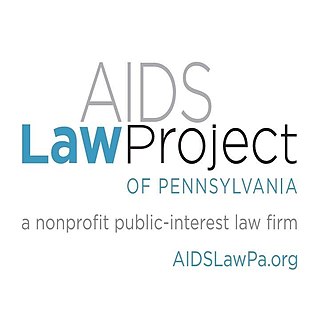Ilka Tanya Payán | |
|---|---|
 | |
| Born | January 7, 1943 |
| Died | April 6, 1996 (aged 53) |
Ilka Tanya Payán (January 7, 1943 – April 6, 1996) was a Dominican-born actress and attorney who later became a prominent HIV/AIDS activist in the United States.
Ilka Tanya Payán | |
|---|---|
 | |
| Born | January 7, 1943 |
| Died | April 6, 1996 (aged 53) |
Ilka Tanya Payán (January 7, 1943 – April 6, 1996) was a Dominican-born actress and attorney who later became a prominent HIV/AIDS activist in the United States.
Payán was born in Santo Domingo, Dominican Republic and immigrated to the United States at the age of thirteen, settling permanently in New York City.
She became widely recognized for her role in the Spanish-language telenovela Angelica, Mi Vida ("Angelica, My Life"). It was from her role on this serial that provided Payán with the experience to move on to bigger roles in Hollywood with a small role in the film Scarface , and a guest role on the television series Hill Street Blues . Prior to these roles, she had worked in local theatrical and television projects in the Dominican Republic, Puerto Rico, and Spain.
She also worked hard to encourage New York's Latino theater community. She was a founder of the Hispanic Organization of Latin Actors (HOLA), and was heavily involved with International Arts Relations (INTAR).
Payán studied law at Peoples College of Law in Los Angeles, California, and became an attorney in 1981, [1] practicing immigration law. It was around this time she contracted HIV from a former lover, for which she did not test positive until 1986. Caught completely off guard by the discovery, she revealed her status to her husband, her then 22-year-old daughter, her niece, and several friends. She and her second husband separated several years later, and ultimately divorced. He never contracted HIV.
Payán did not publicly disclose her status until 1993. Payán's announcement shocked many in the Hispanic community because she was one of the first Latino celebrities to do so. While it was widely believed that the death of singer Héctor Lavoe in June 1993 influenced her, Payán in an interview with the New York Times said that it was an encounter with a man who she liked that helped her make the decision to announce her status. She confirmed to having HIV upon being asked by the interviewer. [2]
The announcement did not go well with some of her ten sisters and six brothers; many who lived in the Dominican Republic were disturbed over the fact that her revelation was received negatively there, as the general consensus in Latin American countries during the second half of the 1980s and early 1990s was that AIDS only affected homosexuals and prostitutes. Payán spent the final three years of her life educating the public about the realities of AIDS. On December 10, 1993 she was given the honor of being chosen as the featured speaker at the United Nations panel for World AIDS Day. Speaking to this world body of diplomats allowed her to discuss the importance of educating citizens of developing nations on how to protect themselves and prevent the spread of the disease. In addition to her work, Payán was honored by her native country when Dominican president Joaquín Balaguer awarded her the Medal of Honor in recognition of her activism. [3] She appeared on the cover of POZ magazine in August 2005, where she was featured in article detailing her life and activism. [4] Payán died from AIDS-related complications at her Hell's Kitchen home on April 6, 1996. In the years preceding her death, Payán worked in the legal department for the Gay Men's Health Crisis, a non-profit, volunteer-supported and community-based HIV/AIDS organization that has led the fight in educating the public on HIV/AIDS prevention. [5]
Since 1999, the Hispanic Organization of Latin Actors (HOLA) has given out the HOLA Ilka Award for Humanitarianism in her honor.
On March 1, 2002, New York City renamed a park in the predominantly-Dominican Manhattan neighborhood of Washington Heights in her honor. The "Ilka Tanya Payán Park" is located on the Greenstreet bounded between 156th and 157th Streets, and Broadway and Morgan Place. [6]
On September 27, 2005, the "Ilka Tanya Payán Theatre" located at the Times Square Arts Center was dedicated. It is meant to serve as an experimental theater for Latino actors and productions. [7]
There are two panels in the AIDS Quilt commemorating her. [8]
| Year | Title | Role | Notes |
|---|---|---|---|
| 1981 | Hill Street Blues | Teresa | TV series, 1 episode |
| 1983 | Scarface | Mrs. Gutierrez | |
| 1986 | Florida Straits | Carmen | TV movie |
| 1990 | Sesame Street Home Video Visits the Firehouse | Dolores - Neighbor (as Ilka Tanya Payan) | VHS |

The AIDS epidemic, caused by HIV, found its way to the United States between the 1970s and 1980s, but was first noticed after doctors discovered clusters of Kaposi's sarcoma and pneumocystis pneumonia in homosexual men in Los Angeles, New York City, and San Francisco in 1981. Treatment of HIV/AIDS is primarily via the use of multiple antiretroviral drugs, and education programs to help people avoid infection.

The GMHC is a New York City–based non-profit, volunteer-supported and community-based AIDS service organization whose mission statement is to "end the AIDS epidemic and uplift the lives of all affected." Founded in 1982, it is often billed as the "world's oldest AIDS service organization," as well as the "nation's oldest HIV/AIDS service organization."

Dominican Americans are Americans who trace their ancestry to the Dominican Republic. The phrase may refer to someone born in the United States of Dominican descent or to someone who has migrated to the United States from the Dominican Republic. As of 2021, there were approximately 2.4 million people of Dominican descent in the United States, including both native and foreign-born. They are the second largest Hispanic group in the Northeastern region of the United States after Puerto Ricans, and the fifth-largest Hispanic/Latino group nationwide.

The Peoples College of Law (PCL) was an unaccredited private law school located in the downtown Los Angeles community of Westlake-MacArthur Park. PCL offered a part-time, four-year evening law program centered on work in the public interest. As of December 2023, there were seven students. The school closed by May 31, 2024 due to accreditation and financial issues.
Henry Joseph Nicols was an American HIV/AIDS activist who became the first American student to intentionally disclose his HIV infection to his community in March 1991.

POZ is a magazine that chronicles the lives of people affected by HIV/AIDS. Its website, POZ.com, has daily HIV/AIDS news, treatment information, forums, blogs, and personals.

Jorge B. Merced is a New York-based Puerto Rican actor, theatre director, and gay activist. He is associate artistic director of Pregones Theater, a bilingual (Spanish/English) Puerto Rican/Latino theater company located near Hostos Community College in the Bronx, New York City. He is best known for his role as Loca la de la locura [The Queen of Madness] in Pregones's play El bolero fue mi ruina [The Bolero Was My Downfall].
Ilka is a feminine given name. Notable people with the given name include:
Catiria Reyes, better known as Lady Catiria, was a Puerto Rican drag performer, film actress, and transgender beauty pageant winner. She was one of the main performers at the New York City Latino nightclub La Escuelita, where she entertained crowds for almost two decades. She was the first person to win two titles at the Miss Continental pageant in Chicago. Towards the end of her life, she became an advocate for AIDS awareness.
The Hispanic Organization of Latin Actors (HOLA) is an active arts service and advocacy organization founded in 1975. It is in the United States and is dedicated to Hispanic artists, actors and actresses. It is not to be confused with H.O.L.A., Helping Outstanding Latinos Achieve, a program winning numerous awards and grants and created in 2012 by Katelyn and Madison Singh; although both advocate for the success of Latino populations.
Keith Christopher was an American actor, singer-songwriter and AIDS activist.
Angélica, mi vidalit. transl. Angélica, My Life, is an American telenovela created and produced by Telemundo and Ángel del Cerro in 1988, in cooperation with Capitalvision International Corporation.
Payan or Payán is a surname. Notable people with the surname include:
Hydeia Loren Broadbent was an American HIV/AIDS activist who advocated through appearances in national media and as a spokesperson for related foundations.

The AIDS Law Project of Pennsylvania is a nonprofit, public-interest law firm that provides free legal service to individuals living with and affected by HIV and AIDS. Founded in 1988, it is the only public interest law firm in the nation that is exclusively dedicated to helping those with HIV and AIDS. AIDS Law Project is headquartered in Philadelphia with an additional office in Southern New Jersey.

Mónica Ramírez is an American activist, author, civil rights attorney, entrepreneur, and public speaker. She has been engaged in service and advocacy on behalf of farmworkers, Latinas and immigrant women.
The Hispanic Federation (HF) is a U.S based non-governmental organization focused on supporting Hispanic communities through local, state, and national advocacy. The Federation was founded in New York City in 1990 by a small group of Latino leaders, establishing initiatives to advocate for the interests of the Hispanic community and has expanded to establish programs, and policies in 16 states. The organization's objective is to empower and advance the Hispanic community primarily through service pillars, membership services, advocacy, and community programs. The Federation has formed relationships with a network of 100 Latino grassroots nonprofits, as well as collaborating with organizations, government officials, and private sector partners to enact systemic change related to a variety of socioeconomic issues for Hispanic communities. The Federation has gained national recognition for its work in areas of education, health, immigration, economic empowerment, civic engagement, environment, and organizational development to strengthening Latino institutions to ultimately increase the quality of life within Hispanic communities.
Yolanda Serrano was an American drug counselor and HIV/AIDS activist. She received the National Organization for Women's Woman of the Year Award and was featured in Ms. magazine as one of the 1988 Women of the Year in 1988.
Katrina Haslip was an AIDS educator and activist who played an essential role in the campaign to change the criteria for government recognition of AIDS to include the symptoms uniquely experienced by women. She co-founded AIDS Committee for Education (ACE) for women incarcerated at Bedford Hills Correctional Facility for Women and its counterpart ACE-OUT for women leaving prison.